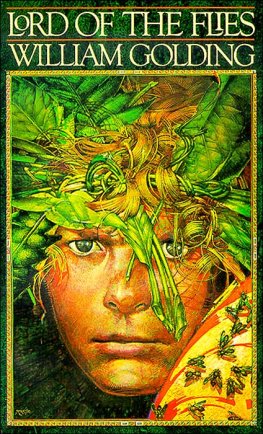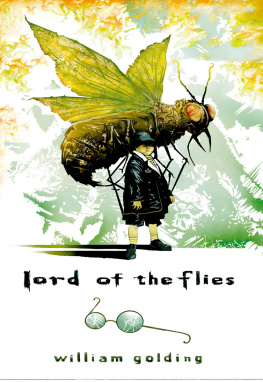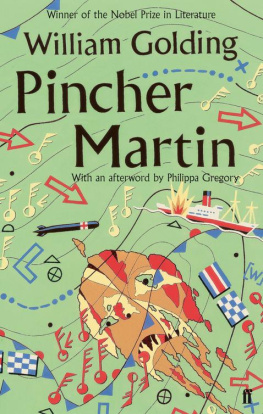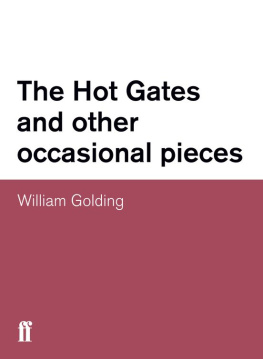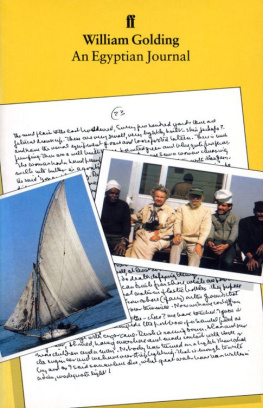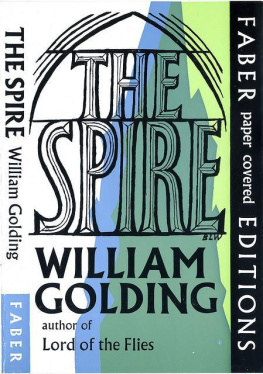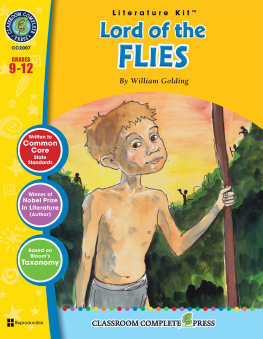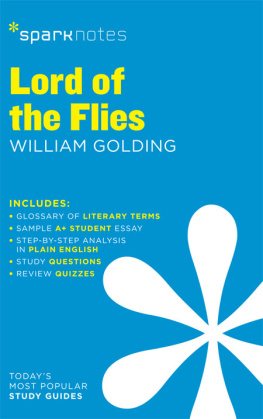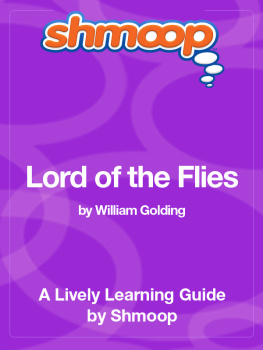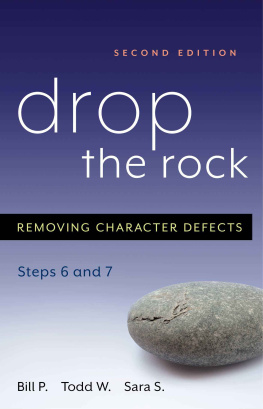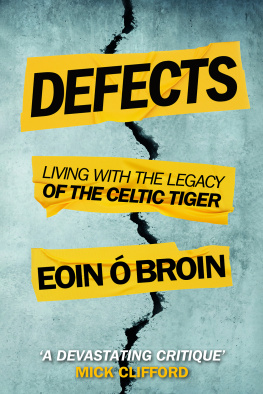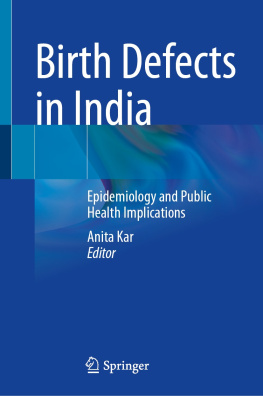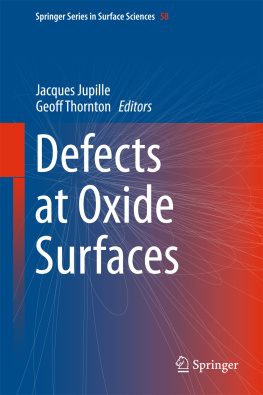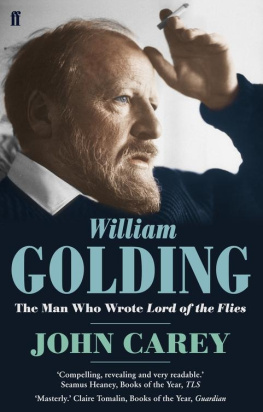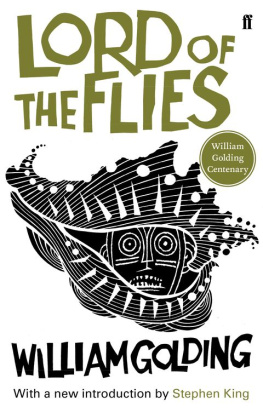William Golding - Lord of the Flies
Here you can read online William Golding - Lord of the Flies full text of the book (entire story) in english for free. Download pdf and epub, get meaning, cover and reviews about this ebook. year: 1959, publisher: Perigee Trade, genre: Prose. Description of the work, (preface) as well as reviews are available. Best literature library LitArk.com created for fans of good reading and offers a wide selection of genres:
Romance novel
Science fiction
Adventure
Detective
Science
History
Home and family
Prose
Art
Politics
Computer
Non-fiction
Religion
Business
Children
Humor
Choose a favorite category and find really read worthwhile books. Enjoy immersion in the world of imagination, feel the emotions of the characters or learn something new for yourself, make an fascinating discovery.
- Book:Lord of the Flies
- Author:
- Publisher:Perigee Trade
- Genre:
- Year:1959
- ISBN:0399501487
- Rating:5 / 5
- Favourites:Add to favourites
- Your mark:
- 100
- 1
- 2
- 3
- 4
- 5
Lord of the Flies: summary, description and annotation
We offer to read an annotation, description, summary or preface (depends on what the author of the book "Lord of the Flies" wrote himself). If you haven't found the necessary information about the book — write in the comments, we will try to find it.
Lord of the Flies — read online for free the complete book (whole text) full work
Below is the text of the book, divided by pages. System saving the place of the last page read, allows you to conveniently read the book "Lord of the Flies" online for free, without having to search again every time where you left off. Put a bookmark, and you can go to the page where you finished reading at any time.
Font size:
Interval:
Bookmark:
Lord of the Flies
by William Golding
For my mother and father
Acknowledgments
A casebook edition of any work of literature is necessarily the result of work and good will by numerous people. We are deeply indebted to the writers who contributed the original materials contained in this volume.
We also wish to thank the authors, editors, and publishers who so kindly granted permissions for use of the previously published materials collected in this volume. Full acknowledgment for their valuable aid is printed in the headnote for each of the articles as well as original sources of publication.
The editors gratefully acknowledge the special courtesies of William Golding, J. T. C. Golding, Frank Kermode, Donald R. Spangler, Bruce P. Woodford, A. C. Willers and James Keating. The Introduction to this book originally appeared in the Arizona Quarterly. It is reprinted here (revised) by permission of the editor, Albert F. Gegenheimer.
For her expert aid in preparing the manuscript, our thanks to Mrs. Paul V. Anderson, and our special gratitude to Miss Helen Davidson, who not only performed routine secretarial duties but offered advice and kept spirits buoyant with her penetrating wit.
J.R.B.
A.P.Z., Jr.
Foreword
It is most astonishing and lamentable that a book as widely read and frequently used in the classroom as William Geldings Lord of the Flies has received so little analytical attention from the critics. True, it has not been neglected; this volume attests to that. But despite the profusion of essays by a number of well-known and worthy critics, few close analyses of Goldings technique can be found among them, few explications of the workings of the novel will be discovered.
Indeed, despite a running controversy over the meaning of the novel, critical articles fall largely into a pattern of plot summary and applause for the arrangement of the novels materials followed by observations on Goldings view of human nature, often embellished with the critics response to that view.
There are exceptionsthey will be found among the essays in this booklike Claire Rosenfields psychological study of meaning, Carl Niemeyers comparative study of the novel and its antipathetic predecessor The Coral Island, Donald R. Spanglers penetrating study of the function of Simon, and William Muellers discussion of the use of the various hunts.
Further explorations are needed in many areas, however, among them a careful scrutiny of the opening descriptions of Ralph and Jack in Chapter One. It is useful, but perhaps not very subtle, to point out that the former is immediately declared the fair boy, that he, like the angel Gabriel, sounds a horn that announces good newsthat of survivalthat Jack with his angular frame, black cloak and cap, and red hair is Lucifer-like.
More Biblical parallels must be developedthe paradisiacal setting, the symbolic nakedness or near nakedness of all the boys except Jack and his followersbut most especially needed is a study that explains items that do not comply with the original Biblical pattern but that perhaps serve as tip-offs to the theme and the ironies that Golding employs without fully delineating until the last page, for instance the response of the paradise to the boysfirst from the heat, then a bird with an echoed witch-like cry, then the entangling creepers (more like the Eden of Milton than Genesis)together with the important information that Ralph, not Jack, has a snake-clasp belt, that Jack wears a golden badge. We have implications very early that Goldings view is not simple, traditionally Christian, or predictable in spite of the title, that it is a complex rebuttal to the ever-present faith in mans potential for regeneration and redemption. Here is a fruitful area of research: do all these elements of the novel, some seemingly inconsistent, even extraneous, operate in unified support of theme?
Symbolism is one of the most puzzling aspects of this book. The names of the four major characters are a perplexing illustration. Simon, the mystic of the group, has a name clearly linked with an Apostle of Christ, the one, strange to say, who denied Him three times. (Simon does deny the objective existence of the beast, but is this a parallel?) Jack also has such a name, since his first name is a nickname for John, the announcer of Christ, also a follower of Christ, arid his last name is Merridew, an echo at least of Mary. Ralphs name, oddly enough, is unrelated to the New Testament and in fact is said to be akin to the Anglo-Saxon Raedwulf, wolf-council. Piggys nickname appears even more incongruous because it is Simon rather than Piggy who is slain as a substitute pig. The only instance in which a name seems incontestably appropriate is that of Roger, where etymology directs us to the Anglo-Saxon Hrothgar, spear-fame.
In The Coral Island the three protagonists are named Jack, Ralph, and Peterkin Gay. Golding claims that he changed the latter name to Simon to emphasize his priestly qualitiesimplying some intention on his part to make at least one name symbolicwhile another critic insists that Peterkin is altered not to Simon but to Piggy. But that is beside the point. The central question is, To what extent do the names function symbolically? Do we just select Simon and Roger and, because inconvenient, forget the others? Or is there another more subtle solution?
We are also mystified by the relationship between Lord of the Flies and The Coral Island. Before undertaking a study of Goldings book, must one study Ballantynes? To what degree do details in the former depend upon the latter, and, more confusing, to what degree do both books contain the same details because of similarity of setting?
No one has produced a full-scale synthesis of the symbols of the novel either, nor has anyone prepared a fully adequate study of characterization. Ralph himself is an enigma. Does he represent the idealist and Piggy the pragmatist? Or the reverse? Why are Piggy and Jack foes from the start, but Ralph and Jack friends for a considerable length of time? Is it important that Ralph disdains Piggy for so long? Why does Ralph the leader have such difficulties controlling the littluns even though they instantly recognize him as chief rather than Jack? Why doesnt Ralph establish a closer bond with Simon? Why does Goldinghave Ralph enjoy drawing blood? As one examines the novel closely, he may find himself confronted with a highly ambiguous protagonist, and for what purpose? Do these complications help or hinder the operation of the novel? These are vital matters in evaluating it.
One could add to this list of needed studies indefinitely: a detailed look at the use of war and fighting (they are important from the first page to the last), a discussion of the relationship of nature descriptions and events, a look at the historical predecessors of the mountain, and how they bear on the novel (Calvary, Sinai, Ararat, Olympus, to name a few possibilities), the cause of the evil (Is it really original sin?), and so on.
Yet in spite of the gaps in the criticism, some commendable studies have been undertaken, and we have tried to assemble the most useful of them in this book. Supplementing them are two interviews with Golding in which he discusses both his own conception of the novel and related matters.
Through our arrangement of and notes to the articles, we have tried to reflect the intricate texture of the novel as illustrated by the critics and to point up areas of perplexity and disagreement. The bibliography at the close of the volume indicates possibilities for further reading and study.
Arthur P. Ziegler, Jr.
Introduction
Lord of the Flies offers a variation upon the ever-popular tale of island adventure, and it holds all of the excitements common to that long tradition. Goldings castaways are faced with the usual struggle for survival, the terrors of isolation, and a desperate out finally successful effort to signal a passing ship which will return them to the world they have lost. This time, however, the story is told against the background of an atomic war. A plane carrying some English boys, aged six to twelve, from the center of conflict is shot down by the enemy and the youths are left without adult company on an unpopulated Pacific island. The environment in which they find themselves actually presents no serious challenge: the island is a paradise of flowers and fruit, fresh water flows from the mountain, and the climate is gentle. In spite of these unusual natural advantages, the children fail miserably and the adventure ends in a reversal of their (and the readers) expectations. Within a short time the rule of reason is overthrown and the survivors regress to savagery.
Font size:
Interval:
Bookmark:
Similar books «Lord of the Flies»
Look at similar books to Lord of the Flies. We have selected literature similar in name and meaning in the hope of providing readers with more options to find new, interesting, not yet read works.
Discussion, reviews of the book Lord of the Flies and just readers' own opinions. Leave your comments, write what you think about the work, its meaning or the main characters. Specify what exactly you liked and what you didn't like, and why you think so.

